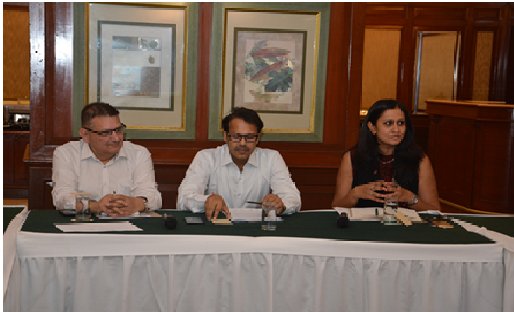Focus on Street Children for Sustainable Urban Development

A roundtable was jointly organised in New Delhi which focused on an Actionable Agenda for Prioritising Children in Urban India
New Delhi: Keeping children at the centre of redesigning an urban development programme, a roundtable was jointly organised recently in New Delhi by National Institute of Urban Affairs (NIUA), Save the Children, UNICEF and BvLF (with support from Ministry of Housing & Urban Affairs –MoHUA) and technical support from Indian Institute of Human Settlements (IIHS) for key stakeholders. Experts from Built Environment, Architecture and Social and Public Policy participated in the discussion.
The roundtable focused on creating customised and never before solutions to cater to specific needs of children in urban settings, since children do not get the due attention, both, in urban plans and budgets. The recommendations discussed in the round table will culminate into a ‘Charter of priorities for children in urban India’, which will be presented to honourable Minister - MoHUA for embedding it into the flagship programmes and schemes.
Speaking at the roundtable, Kunal Kumar, Joint Secretary, MoHUA spoke on prioritising children in the urban context, highlighting that the mind-set should be that of investing in children and our future, instead of thinking of it as expenditure. He said, “It is important to understand and tap the emerging technology trends and design relevant solutions for the children of tomorrow. Other key speakers at the roundtable were Hitesh Vaidya, Director, NIUA and Bidisha Pillai, CEO, Save the Children.
Bidisha Pillai added by saying, “There is need for convergence as well as coordination to bring that impact for urban children. This is only the beginning for getting the right stakeholders together and from here we need to specifically address each area that gets identified”.
The discussion, led by Ramesh Negi, Chairperson, and Delhi Commission for Protection of Child Rights (DCPCR), pressed upon a need to standardise aggregation of data and uniform interpretation. Speaking on the occasion, Mr. Negi said, “The most neglected children- especially those on the streets – need to be kept in mind while making master plans for cities”. He added, “Plan for majority should be the prime consideration while creating urban city plans.”
Specific problems of children can be tackled only by age-appropriate, gender-based solutions. He highlighted progress made in advancing the rights of children in urban settings and then further emphasised on the process and what needs to be done. The broad areas for the discussion were derived from a roundtable discussion of children held in Kolkata on 20 August 2019.















































